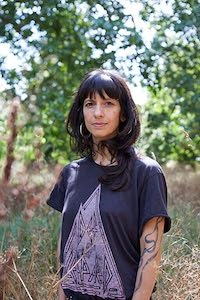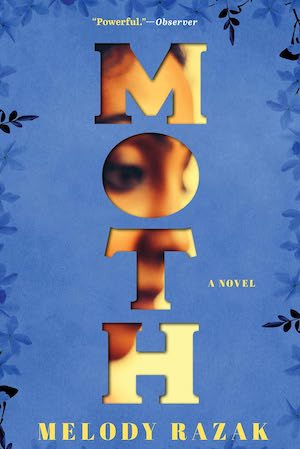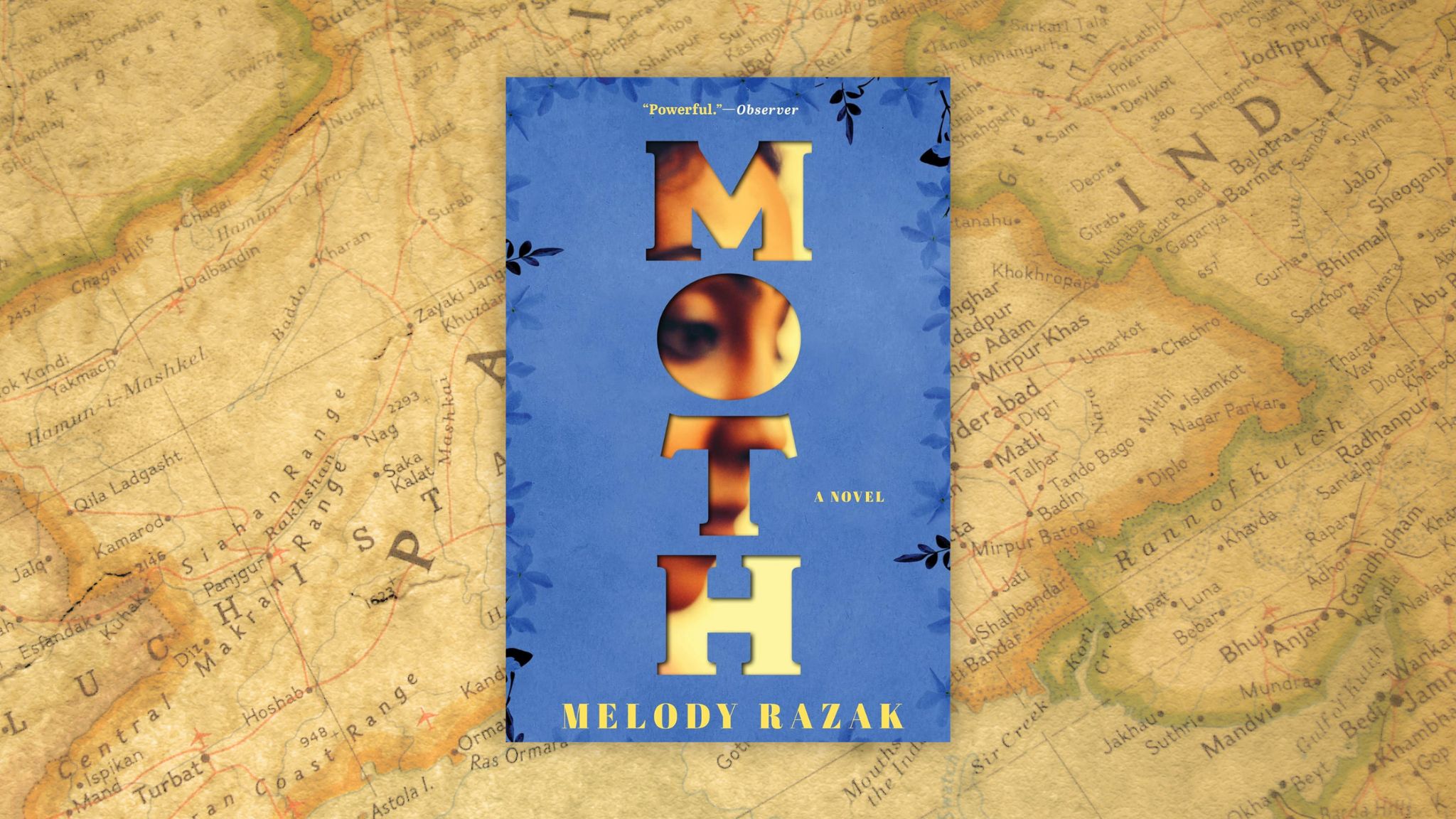Moth: A Novel by Melody Razak
Melody Razak has written Moth (HarperCollins), a truly exceptional debut novel, chronicling the harrowing experiences of a Brahmin family caught up in the tumultuous, perilous time period when India achieved independence from the dominant colonial rule of the British Raj. The arbitrary and haphazard lines delineating The Partition were drawn; India, East and West Pakistan were suddenly divided resulting in calamitous riots, massacres, devastation and destruction. (For further reading about the era, read Independence by Chitra Banerjee Divakaruni.)
From India to Pakistan
The novel consists of three parts with events occurring in a time period of less than two years from early 1947 to late 1948. The first two sections take place in northern India in Old Delhi and the third in Lahore, Pakistan. It begins with a family’s time of joyful wedding planning but soon plunges into tumult and despair during some of the darkest days in India’s and their personal family history. The story is narrated in both third person by the author as well as first person by the young protagonist Alma. She is the eldest of two daughters, who in a childlike fashion never reveals their surname, only referring to her family by their pet names.
Her parents Buppa (Brahma) and Ma (Tanisi) are both professors at Delhi University. Her mother is the only female Hindi faculty member in the primarily Muslim Urdu Department. The family is progressive, intellectual and multi-lingual, speaking Hindi, Urdu and English.
Despite his high Brahmin status, Buppa professes to believe the caste system is archaic and obsolete although in actuality his children have never even spoken to an untouchable. This lowest group in the social hierarchy performs hard labor and the dirtiest tasks imaginable. The servants may provide a beverage or food to someone such as the water bearer but it is given without direct contact in crude clay vessels to be broken after this single use.
The rest of the household consists of Buppa’s mother Daadee Ma, their precocious five-year-old daughter Roop (Ravinder) and two live-in servants: Dilchain, who does the marketing and cooking, and Fatima Begum, who joined the family as a wet nurse when Alma was a newborn. Fatima is the niece of respected jeweler Ali Ahmed Abed who would like her to leave Delhi with his immediate family. Ma convinces him Fatima is safe with the family and inseparable from her younger child. Buppa’s wealthy sister Cookie Auntie (Lakshmi) is a frequent visitor. They reside in Old Delhi in a pleasant, well-appointed home called Pushp Vihar meaning the House of Flowers.
A Glimpse into History
The Direct Action Day riots in Calcutta seemed far away but there are clear signs and rumblings of conflict ahead in the walled city of Old Delhi where the family resides. This center of the Mughal Empire beginning with Shah Jahan boasts an imposing Red Fort, the remnants of 14 gates in its walls and Islamic architecture in the oldest sections of the city. Historically the population was and remains predominantly Islamic consisting of a mix of many ethnic groups from the Indian subcontinent who lived and worked in harmony. Many of the Muslim professors with their extended families and servants along with other life-long residents began to flee to what would become West Pakistan.
The week after the deadly Calcutta riots, upon recommendation of the University board, Ma accepted a new responsibility as a private tutor of Urdu language and poetry. Her all-male peers had refused the job. She ignored the gossip and danger of teaching the two young sons of a widower Islamic cleric in his own home, despite the presence of his sister.
She is impressed by his elder son’s quick intelligence and enthusiasm for learning, telling her sister-in-law, “When the Muslims leave, they will take the Urdu language and poetry with them. That’s why I need to keep a trace of it alive: teaching it, passing on the knowledge … it will be a tragedy if we lose all those layers of richness.” Thus, it is shocking when, not long after, she is summarily fired in the harshest language by her department head from both positions as professor and tutor.
A Family Saga
Daadee Ma is a bitter, angry widow; a constantly meddling harridan with nothing positive to say. Her actions unwittingly become a catalyst that ignites the flames of destruction that shatter the family and threaten to bring down their home. She is like a wasp burrowed in a ripe guava, ready to sting with the slightest provocation. Her older granddaughter is barely 14 years old but she is determined the child is imminently of marriageable age and arrangements urgently need to be made. Reluctantly and with some misgivings, the parents relent as the promised groom is older, recently graduated as a doctor and about to leave for residency in England. It is customary to have a horoscope made for the betrothed couple to confirm their suitability.
Unfortunately, Daadee Ma has altered it to portray her grandchild in the most positive light. Her actual horoscope shows an evil eye hovering; a bad sign that if revealed would warn off suitors. The engagement is celebrated with a lavish dowry of gold and jewelry awarded to the groom’s parents. The bride-to-be will not meet her husband until the wedding occurs but had caught a scant glimpse of him across a large room.
Alma is a naïve, innocent and immature school girl who still plays with toys and dolls. Her primary attire is her school uniform with white knee socks and sturdy shoes and always displaying a red apple clip in her hair. She won’t receive a sari until she is wed. She has never been alone with or indeed, ever spoken to a boy. Classrooms are segregated by sex and until Independence; the schools indoctrinated students in the superiority of British culture, history and literature, teaching Keats instead of Tagore. This slender, underdeveloped child holds a dreamy, romantic view of the wedding preparations and celebration without any comprehension of what marriage would actually entail.
Her grandmother’s ruse fails disastrously. The groom’s family commissioned their own horoscope which revealed the one provided had been altered. Days before the ceremony they cancelled the wedding and kept the dowry. In addition to the large financial loss suffered, this action publicly disgraced the family and potentially could spoil Alma’s prospects of any future marriage.
Auntie Cookie persuades Alma’s parents to allow her to travel by train to her home in Bombay for an extended visit convincing them she will have a chaperone and guards on the long journey. In retrospect, traveling 700 miles on the Bombay Express on August 16, 1947, the day after Independence Day, was an unwise choice. Although India had been experiencing great unrest, no one anticipated a blood bath. Heavily armed Muslim soldiers attacked and halted the moving train, murdered the majority of the passengers, employees and guards, robbed the corpses and brutally raped the women. As a final act of violence, a number of women were abducted and transported across the border into Pakistan.
One moment, in their first class compartment, Alma was laughing and chatting with her chaperone as they nibbled on dainty sandwiches and pastries, and the next, utter chaos ensues. The reader has now been armed with some background information about the characters and setting. It is time to read this powerful, arresting and at times, brutal work of fiction.
Realistic Novel From Must-Read Author
Moth is a fascinating, realistic novel by London born, British Iranian author Melody Razak, first published in Hindi in India. The author’s career path to full-time writer is also interesting. She graduated from Leeds University over two decades ago with a degree in English literature but became a pastry chef and café owner in Brighton. At age 40, she sold the café and returned to college to earn an MFA. She has said her inspiration for Moth came while baking and listening to Partition Voices, a prize-winning BBC 4 radio program consisting of stories of Indians, Pakistanis and British citizens who witnessed The Partition.
Melody Razak spent a summer working her way through the extensive archives in the British Library. She then traveled for a year throughout India to study, research, and absorb the languages and culture. Her observations and experiences add authenticity and rich detail to this compelling work of fiction. Suggestions for further reading are included in the back of the book.
 Melody Razak started writing Moth while studying for her MA in creative writing at Birkbeck. Previous to writing, she owned the café treacle&co and more recently worked in the kitchens of Honey and Co. in London as a pastry chef. Melody has been awarded distinctions for her short stories, and has also written articles for the Observer, Food Monthly, and the Sunday Times. Moth is her first novel.
Melody Razak started writing Moth while studying for her MA in creative writing at Birkbeck. Previous to writing, she owned the café treacle&co and more recently worked in the kitchens of Honey and Co. in London as a pastry chef. Melody has been awarded distinctions for her short stories, and has also written articles for the Observer, Food Monthly, and the Sunday Times. Moth is her first novel.





